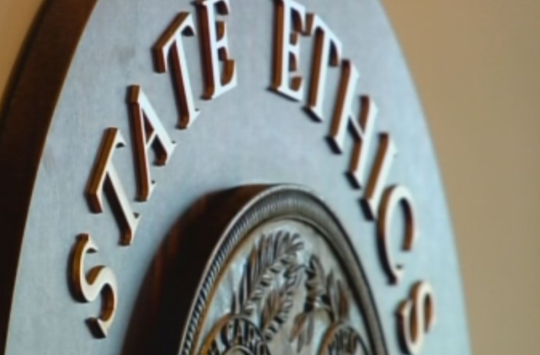
Seven weeks later, the state Senate still hasn’t approved one
By ROBERT MEYEROWITZ
Reforms to the state Ethics Commission were due to be enacted as of April 1 of this year, but if you visited its website lately, and looked at the space where the eight members of the commission should be listed, you’d have seen… nothing.
At the same time, a panel discussion on corruption last week at the Columbia Marriott drew a standing-room-only crowd. Coming as it did on the heels of the indictment of state Representative Rick Quinn, the former House majority leader, on misconduct charges, alleging that the lawmaker used his office to enrich himself, at least some South Carolinians are paying more attention to corruption and ethics at the statehouse now.
In theory, the new Ethics Commission would be doing the same thing.
Under the revised statute, the commission would, for the first time, have jurisdiction to investigate complaints against members of the House and Senate such as Quinn, state Senator John Courson, and Representative Jim Merrill, all of whom have been indicted over the past five months for misconduct in office, following investigations by special prosecutor David Pascoe. Formerly, lawmakers policed themselves.
All eight members of the new commission have been named, four by the governor, one by the state House majority party, one by the state House minority party, one by the state Senate majority, and one by its minority. All eight have been approved by the House.
Yet there is no new commission because, nearly two months after it was slated to begin work, the state Senate seems to be in no hurry to confirm one.
On Tuesday morning, Steve Hamm, the commission’s interim executive director, said he was hopeful the Senate would do that before the end of the day.
At the end of the day, he said, “They just didn’t address it today.”
That leaves the agency in an odd place.
Hamm, formerly an attorney in private practice, was named to his post in February after the executive director retired. “The commission that asked me to step in on an interim basis does not exist at this point,” he explained.
The 12-member staff continues to do its work, he said — accepting complaints, reviewing filings for campaign finance and statements of economic interests. It’s the commission, however, that would have the authority to review and consider evidence and make a determination about whether to refer lesser matters to the House or Senate ethics committees, and weightier ones to the state attorney general. “We have matters they are going to need to address.”
The old commission last met on March 17. The commission normally met every other month, and sometimes monthly.
The commission will have expanded duties but not staff. It presently employs four investigators who look into complaints. “I think we’re probably going to need one or two more,” Hamm said, adding that that would be something for the legislature to consider, as well as the new commission.
Courson is accused of misusing campaign funds. Merrill and Quinn have contended that their conduct was approved by supervisory authorities.
The Ethics Commission receives campaign finance filings but is not equipped to audit them, Hamm said. “We do some examinations. There are occasions when we have reviewed filings and we have raised questions and asked individuals to provide explanations, but we could certainly update that. Right now, we’re operating with the resources the General Assembly makes available to us.”
The commission, a supervisory authority, also issues formal opinions, although they’ve been infrequent. One of the two most recent ones posted on its website, dated July, 2016, held that campaign services performed by a paid family member could be legal provided they are bona fide services. Paid consulting work performed by a family business “are inherently suspect,” it states, “and can only be made if the person receiving them is in the business.”
If and when there’s a new commission, the expanded thrust of its work will likely consist of evaluating investigations of complaints. For now, it’s just a question of the state Senate confirming one.
“I was advised that they’ll likely deal with it next week,” Hamm said. “I’m fully satisfied that they’re going to get this done, I just don’t know when that might be. Obviously, we need to have a commission so we can present cases to them.”
